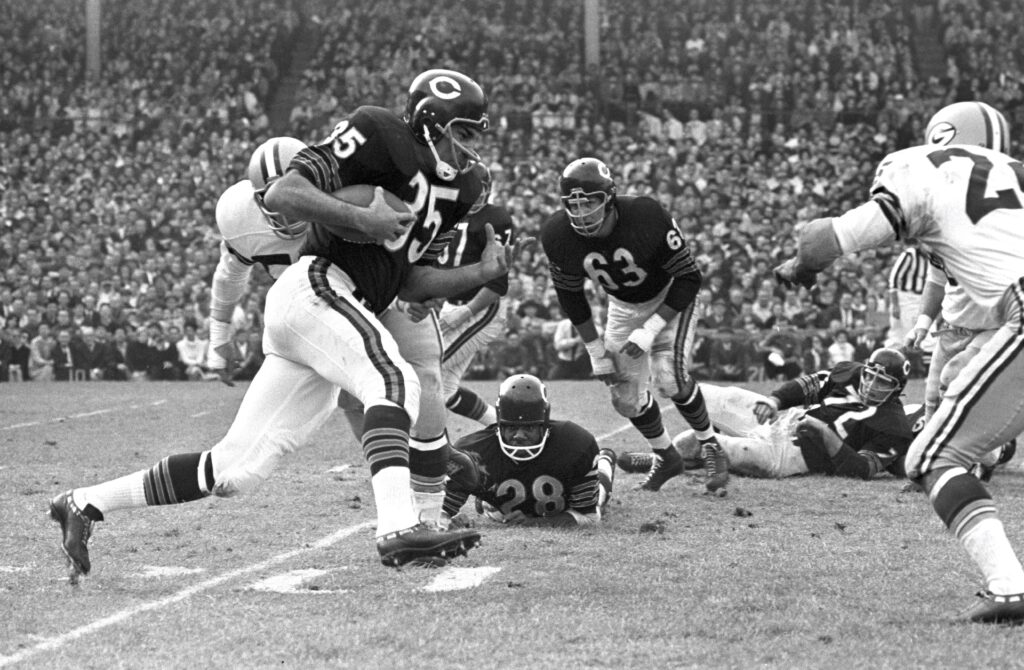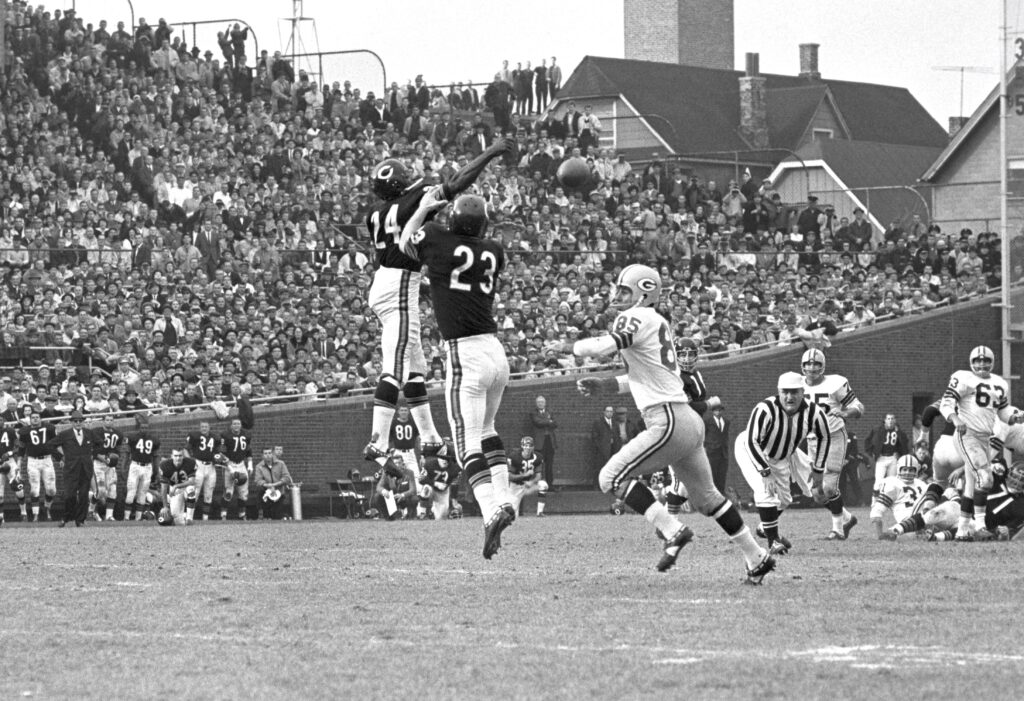
By David A. F. Sweet
The defense only allowed 10 points a game. The team’s turnover ratio during the season was plus 38. Mike Ditka’s combative nature helped inspire the players.
The 1985 Chicago Bears? No, the 1963 Chicago Bears.

“Some football analysts say the Bears of ’63 were the most dominant team of the pre-Super-Bowl era,” says author Chuck Billington.
Chicago sports historian Charles N. Billington has reintroduced the nearly forgotten squad in The 1963 Chicago Bears: George Halas and the Road to the NFL Championship. Published by McFarland this year, the book commemorates a special season by a powerful team.
“Some football analysts say the Bears of ’63 were the most dominant team of the pre-Super-Bowl era,” Billington said. “Bears fans have a gap in their understanding of the team regarding anything before 1985.”
A Glencoe resident who has written two other Chicago-oriented sports books, Comiskey Park’s Last World Series: A History of the 1959 Chicago White Sox and Wrigley Field’s Last World Series: The Wartime Cubs and the Pennant of 1945, Billington boosts his case about the Monsters of the Midway with surprising facts. Quarterback Billy Wade, who scored the team’s only two touchdowns in the championship game, led the league in passing the previous year, even topping legends like Johnny Unitas and Norm Snead.
“The last great Bears quarterback was not Sid Luckman,” said Billington, citing a common lament of the fan base. “Not just Wade, but Johnny Lujack led the league in passing in 1949. We’ve had good quarterbacks – the public has ignored them.”

Rick Casares runs toward the end zone at Wrigley Field in a picture that adorns the cover of the book.
The name of George Halas may appear on the cover, but readers will be surprised that the Bears owner-coach – 68 years old at the time — was not the driving force behind the team’s success. The credit on the coaching side belongs to George Allen.
Hired as an aide, Allen worked his way up to defensive coordinator, and he helped the ’63 squad’s ferocious performance, led by 6-foot-8 Hall of Famer Doug Atkins and the pugnacious Ed O’Bradovich. Even more importantly, Allen was effectively serving as general manager; 16 of the team’s 22 starters were either traded for by him or drafted by him, Billington noted. Two of his draft picks, Mike Ditka and Ronnie Bull, won back-to-back Rookie of the Year awards.
After the 14-10 victory over the New York Giants in the championship game, Allen received the game ball. Even though NFL teams were receiving a record $333,000 apiece from TV revenue at the time – meaning for most teams, their salaries were covered before a ticket had been sold — Halas did not give his champions bonuses. Given the top Bear player earned $23,000 that year, the lack of an extra paycheck certainly stung.
As might be expected roughly 60 years after the big victory, only about 10 players of the 43 on the roster were alive when Billington conducted his research. And aside from halfback Ronnie Bull and a handful of others, few wanted to talk – including one of Billington’s neighbors.
“Bob Wetoska (a right tackle) lives four blocks from me. His wife said, ‘He’s not talking with anyone now,’” the author said.
There are other topics addressed in the book: the rivalry between Halas and Green Bay Packers coach Vince Lombardi, the way NFL Commissioner Pete Rozelle was focused on increasing television revenue, and gambling. In fact, two NFL stars – the Packers’ Paul Hornung and Detroit’s Alex Karras – were suspended for the entire 1963 season for betting.
The Bears’ victory at the end of December that year — played in -11 wind chill at Wrigley Field, where Billington said the field was so close to the stands, sometimes you could hear the players yelling at each other – was a highlight for the franchise for decades. The Bears swooned during the rest of the 1960s – including a 1-13 mark in 1969 — and most of the 1970s. Lured from Minnesota, General Manager Jim Finks started building them back up, principally with excellent draft picks on both sides of the line. And then, in a completely unexpected move, Halas recruited 1963 tight end Ditka to coach the Bears. He helped lead them to glory in 1985 with a team whose antics captured the country’s imagination.

Roosevelt Taylor (24) and Davey Whitsell (23) fight for an interception against the Green Bay Packers. Whitsell’s interception for a touchdown against the Detroit Lions in the last game of the regular season helped propel the Bears to the title game.
Today, Billington is amazed at the franchise’s enduring hold on the city.
“The Bears are like Kool-Aid,” he said. “I think it’s because Chicago has roots as a blue-collar town. Football has always been a big draw in such a population.”
Author of Lamar Hunt and Three Seconds in Munich, The Sporting Life Columnist David A. F. Sweet can be reached at dafsweet@aol.com.






